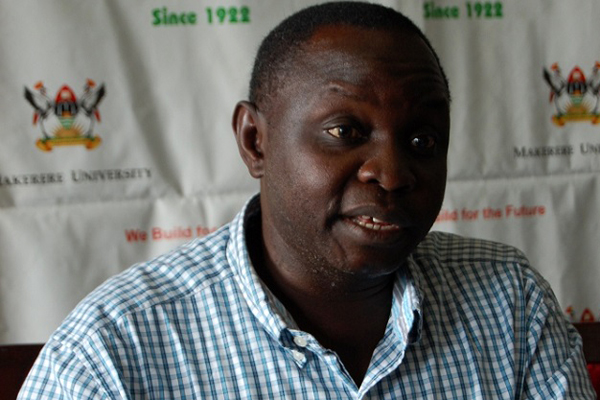Mak sets up facility to store body parts

What you need to know:
Prof Joloba asked government to provide them with at least $100m (Shs354 billion) to expand the facility to avoid heavy spending by Ugandans when they travel abroad for organ transplant services.
Makerere University has established a facility to store body parts for people who need transplants and other medical interventions, the developers revealed yesterday.
The development comes a few weeks after Parliament enacted a law criminalising human sacrifice and the June 2020 Cabinet approval of the Uganda Human Organ Donation and Tissue Transplant Bill, 2020.
Presenting to officials from the university and the National Research and Innovations Fund (NRIF) yesterday, Prof Moses Joloba, the lead investigator in the banking of body parts, said they have laid down clear strategies to survive the ethical and social concerns around their development.
“We have successfully established a bio-banking facility at Makerere University Hospital, where ovum, sperm, umbilical cord blood and stem cells are being stored. We are also doing transplanting,” Prof Joloba said.
He added: “Our next focus is to start banking cornea (clear front layer of your eye), bone allografts (bone tissues) and skin tissue.” The ovum and sperm are donated by volunteers to be given to people who are having fertility issues, according to Prof Joloba. But soldiers and young people can store these for safety purposes and future use, although this attracts some charges, according to the expert.
Umbilical cord blood and stem cells are used to replace cells damaged from chemotherapy or radiation treatments, especially for cancer patients, according to Prof Joloba.
Bones to repair and rebuild diseased or damaged ones, and skin tissues are used to treat people with keloids and other skin diseases.
Asked how much patients pay to get the tissues or organs, Prof Joloba said the products are given freely, but that some charges may come from services by doctors handling the patient or hospital bed charges.
“We always reach out to people and they donate the tissues [or organs] at free cost. We screen the donors to see whether they are healthy and we keep other information about their personality and race,” Prof Joloba said.
“We don’t want to commercialise this [donation of tissues and organs] because the effects can be disastrous,” he noted.
But a study conducted by researchers from the university last year indicated that Ugandans are concerned about exploitation because some people will get more benefits.
When the law against human sacrifice was enacted early this month, the vice chairperson of the Committee on Legal and Parliamentary Affairs, Mr Paul Akamba (Busiki County), said although they unreservedly backed the Bill, there is a grey area in legislation that relates to possession of human body parts. This comes since there is no specific law in Uganda prohibiting the possession or sale of human body organs.
“Body parts can be removed from a living or dead person; the offence of murder cannot be preferred since in most cases, there is no dead body to sustain a charge,” he said.
This gap made government to be relaxed about encouraging development in tissue transplants in the country, although Prof Joloba reasons that they have potential.
Prof Joloba asked government to provide them with at least $100m (Shs354 billion) to expand the facility to avoid heavy spending by Ugandans when they travel abroad for organ transplant services.
This was one of the projects undertaken through the Shs30 billion Makerere University Research and Innovation Fund (Mak-RIF) support. The money is from the government of Uganda.
Prof William Bazeyo, the head of NRIF at the Ministry of Science, Technology and Innovations (Mosti) and Chairperson of Mak-RIF Grant Management Committee, said they are now focusing on supporting innovators to commercialise their products and create jobs for Ugandans.
He said the government has earmarked Shs500 billion to support research and innovation in the next financial year.



